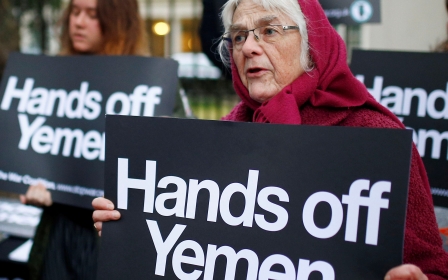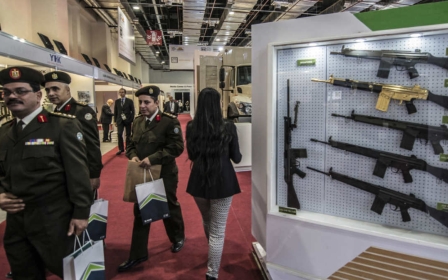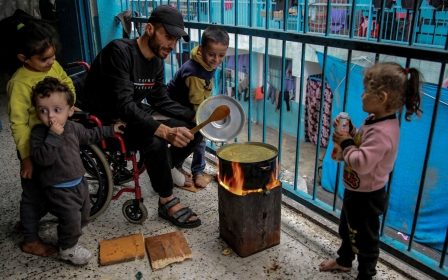Israel-Palestine war: Groups take UK government to court over arms exports to Israel
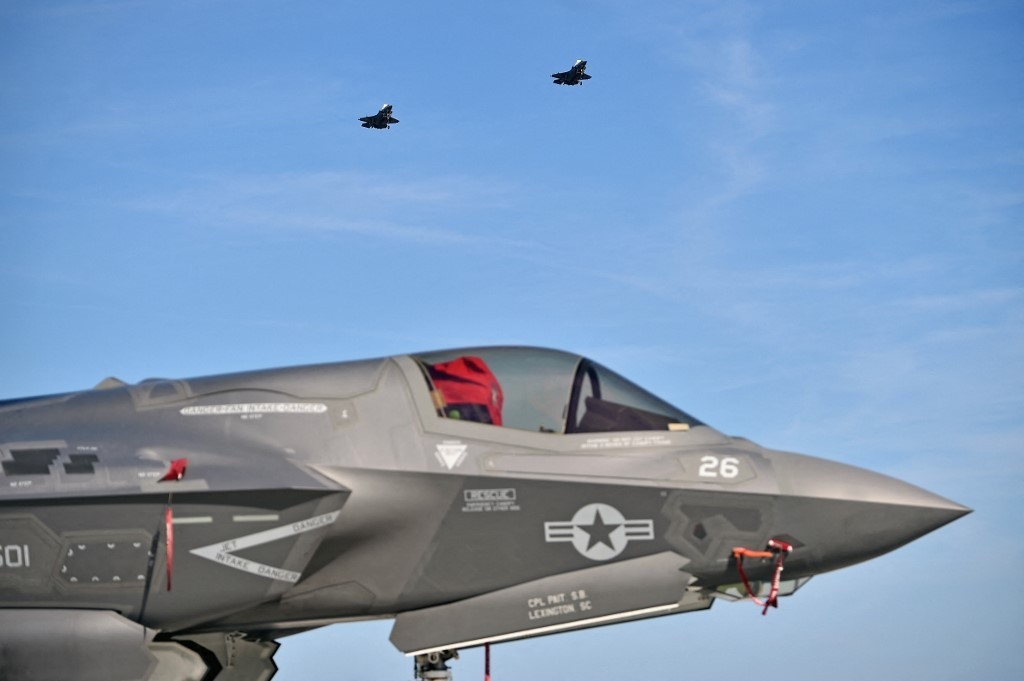
Legal and human rights groups challenging the British government in the High Court say the UK has breached its legal obligations by continuing to license arms sales to Israel as it continues its offensive on Gaza.
In a case filed on Wednesday, Palestinian human rights organisation Al-Haq and the UK-based Global Legal Action Network (GLAN) say there is mounting evidence of Israeli violations of international law in its onslaught which has seen nearly 15,900 people killed, including at least 6,000 children.
Under its own arms exporting criteria, the government is obligated to suspend licences for arms exports if it determines that there is a clear risk that British weapons might be used in such violations.
The groups say, based on their own assessment of evidence they have compiled, Israel’s actions have “long passed this threshold of risk”.
“It’s utterly untenable and irrational for the government to conclude that no such risk exists and continue to allow arms sales to Israel,” said Siobhan Allen, a senior lawyer with GLAN.
Stay informed with MEE's newsletters
Sign up to get the latest alerts, insights and analysis, starting with Turkey Unpacked
Ahmed Abofoul, legal research and advocacy officer at Al-Haq, said the UK “must demonstrate its compliance with its obligations and responsibilities under international law in all situations”.
“There is no place for double standards, selectivity and hypocrisy in respecting and adhering to the rule of international law.”
Their case, if successful, would block all licences and stop the transfer of any UK arms to Israel.
The Department for Business and Trade does not comment on legal proceedings. But a department spokesperson told Middle East Eye that the situation in Israel and the occupied Palestinian Territories is being monitored "very closely".
“We can and do respond quickly and flexibly to changing international circumstances," they said. "All licences are kept under careful and continual review and we are able to amend, suspend, refuse or revoke licences as circumstances require.”
Earlier challenges
This is the most significant legal challenge to UK arms exports since the Campaign Against Arms Trade (CAAT) took the government to court in 2016 over its arm sales to Saudi Arabia given their possible use in the war in Yemen.
The Court of Appeal in June 2019 ruled in CAAT's favour after hearing evidence that the government had ignored past Saudi-led coalition operations when deciding whether UK arms might be used in breach of international humanitarian law.
Follow Middle East Eye's live coverage for the latest on the Israel-Palestine war
The government was ordered to stop issuing new arms export licences to Saudi Arabia and look at the decision-making processes that allowed existing licences to be granted.
But in July 2020, the UK government started issuing new licences again, saying it had completed a court-ordered review and determined that violations of international law were "isolated incidents".
CAAT challenged the renewal of licensing in court, but judges rejected the case earlier this year.
"The Yemen case was a good example of this licensing regime being tested in court," said GLAN's Allen. "This case we are bringing now - it does beg the question: if not now, what on earth would trigger this licensing criteria?"
What does the UK supply?
According to CAAT, the British government has licensed at least £472m worth of military exports to Israel since May 2015.
The true figure is likely much higher because it doesn’t include items sold under opaque open licences which keep the value of arms and their quantities secret.
'We have got quite a unique opportunity to actually force the government to be held to account'
- Dearbhla Minogue, GLAN
British companies provide around 15 percent of the components of the F35 stealth combat aircraft which Israel has used to bomb Gaza in recent weeks. They also supply missiles, tanks, small arms and ammunition, CAAT said.
Katie Fallon, CAAT's advocacy manager, said it was important to note that the UK government defines itself as the second biggest exporter of military equipment worldwide. Seen in that context, she said, the UK's arms export regime is particularly "disgraceful".
"At the moment, two members of the UN Security Council are providing arms exports to Israel - the US and the UK," Fallon said. "The US and UK support for this is what's making it what it is."
'Ripple effect'
The groups bringing the case say they believe all of the items which the UK exports are capable of being used by Israel against Palestinians in violations of international law.
Alleged violations include indiscriminate attacks on civilians, destruction of infrastructure critical for survival, starvation, forced displacement and, potentially, genocide.
The UK is a party to the genocide convention which requires that it refrain from taking an active part in a genocide.
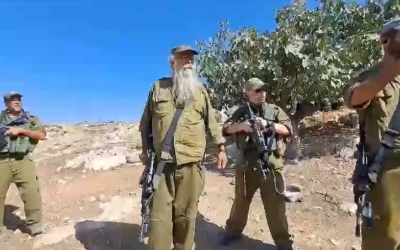
But the convention also leaves signatories responsible to prevent the commission of genocide “using all means reasonably available and within its power”, said Ilora Choudhury, senior in-house counsel at the UK-based International Centre of Justice for Palestinians (ICJP) which is supporting the case.
“This obligation arises as soon as the state is aware that there is a real risk that genocide might occur. The UK is now on notice,” Choudhury said.
Beyond the case at hand, the court could have an impact on litigation globally if it accepts that the duty to prevent genocide is engaged by the case.
“It would send a very clear signal to other states that not only does sending weapons to a party who is accused of committing genocide breach the obligation to prevent genocide,” said Dearbhla Minogue, a senior lawyer with GLAN.
“It would also establish the fact that the court recognises that there is a serious risk of genocide happening which I think could have quite a ripple effect.”
The case could also have a wider impact in other ways: unlike most other countries, Minogue said, the UK offers civil society a chance to bring cases to challenge government decision making.
“We have got quite a unique opportunity to actually force the government to be held to account in a court and I think it really presents an opportunity for even a semblance of accountability for Palestinians,” Minogue said.
Middle East Eye delivers independent and unrivalled coverage and analysis of the Middle East, North Africa and beyond. To learn more about republishing this content and the associated fees, please fill out this form. More about MEE can be found here.


